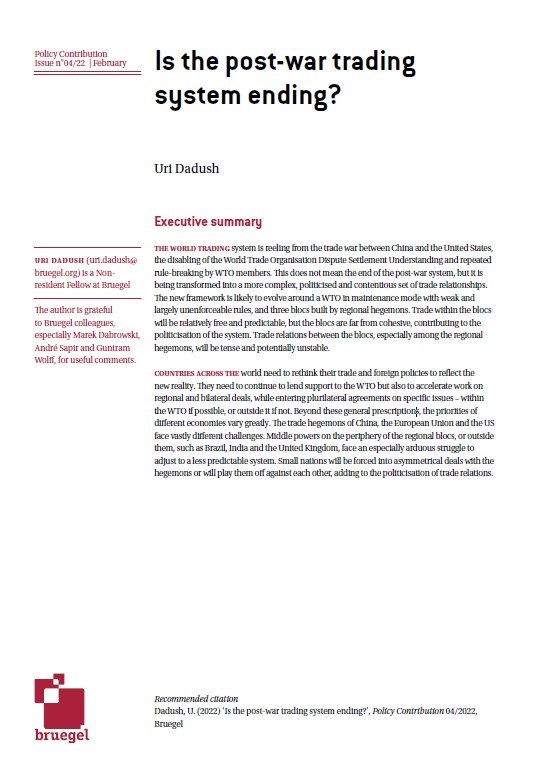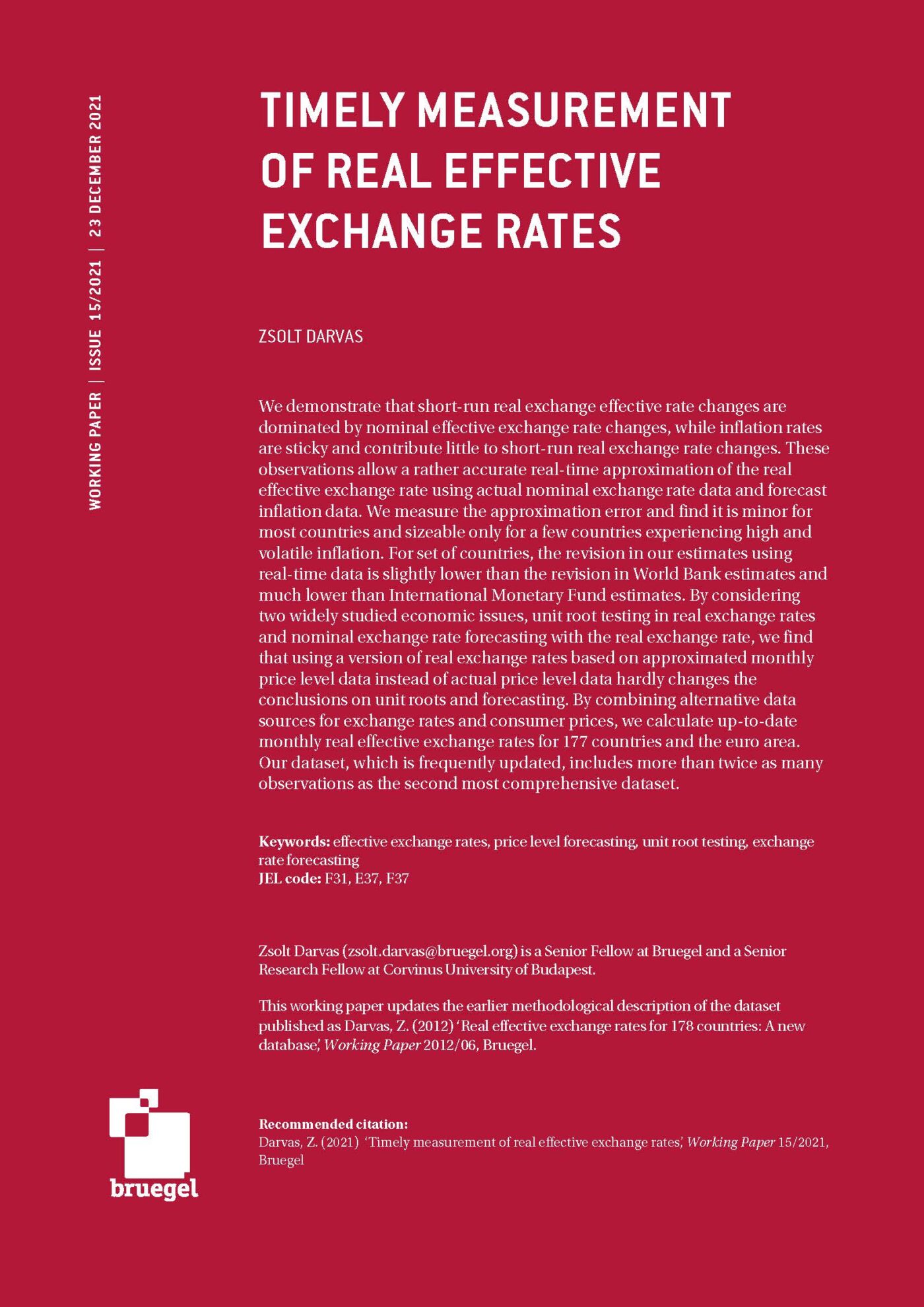Blog Post
Will TTIP survive Brexit?
There are concerns that the UK’s decision to leave the EU may jeopardise future TTIP negotiations. Some fear Brexit could make the EU a less attractive trade partner for the US. However, it seems that the new US administration as well as upcoming elections in Germany and France could end up posing bigger threats to the trade agreement than Brexit.
23 June 2016 was a sad day in the history of the European Union. Nearly 52% of the British citizens who voted decided to leave the European Union, reversing the decision to join the European Community in 1973. The campaigners for “leave” are exulted; they have called the referendum a sort of reformation to save Britain from an unstable EU beset by problems with migration, security and financial stability. The repercussions of Brexit are serious. Now it is time for action and moving forward.
Against this backdrop, there is a considerable amount of discussion on the fate of the Transatlantic Trade and Investment Partnership (TTIP) after Brexit. TTIP is an ambitious, comprehensive, and high-standard trade and investment agreement, currently being negotiated between the United States and the European Union. The US and EU economies are two of the most modern, most developed, and most committed to high standards of consumer protection in the world. According to the United States Trade Representative (USTR), TTIP aims to bolster that already strong relationship in a way that will help boost economic growth and add to the more than 13 million US and EU jobs already supported by existing transatlantic trade and investment relations. The USTR expects TTIP to be a cutting edge agreement aimed at providing greater compatibility and transparency in trade and investment regulation, while at the same time maintaining high levels of health, safety, and environmental protection. TTIP is expected to take the US-EU strategic partnership to the next level.
The UK and US are important trading partners and there is widespread worry that TTIP negotiations would be affected by the exit of Britain from the EU. It is obvious, given the UK’s economic importance, that the EU’s market for US products will potentially shrink by about 16%. This could make the EU a less attractive trade partner after Brexit. However, the first intervention in this respect came from US Trade Representative Mike Forman, who the day after the referendum emphasised that the “economic and strategic rationale for TTIP remains strong”. Of course, much will depend on the next US administration, set to take over in January 2017. On the same lines, the EU without the UK is more than keen and committed to go ahead and complete the TTIP negotiations. Trade Commissioner Cecilia Malmström announced that “the rationale of TTIP remains strong as it was before the referendum”. She also assured that there would be no climb down from the key EU positions on issues such as government procurement and investment protection. But Malmström also stressed a desire to complete the agreement quickly, as the EU was prepared to make the political choices needed.
However, it is hard to predict the future course of TTIP negotiations. Three years and 14 rounds into the negotiations, there are already 30 chapters being negotiated. However, the deal is nowhere near completion and differences remain. TTIP comprises 3 main blocks: market access for EU and US companies; cooperation on regulatory issues; and global rules of trade such as sustainable development or competition policy. There has been considerable progress on all the three issues. For instance, in market access, especially on tariffs, the two sides have exchanged offers twice which has led to a very advanced stage of negotiations. There is now on the table a proposal with good offers from both sides which include 97 per cent of all tariff lines, leaving the remaining 3 per cent for the so called end game. Furthermore, both sides are working on improvements within the 97 percent tariff lines for speedy removal of tariffs. On regulatory issues, at this point in time there have been negotiations and proposals for cooperation in seven industry sectors, namely on chemicals, cosmetics, engineering, medical devices, pharmaceuticals, textiles and cars. The EU has also submitted detailed proposals for discussion on trade and sustainable development, including on labour and the environment. The EU has had intense discussions on these and hopes to achieve a very ambitious outcome. The EU strongly believes that TTIP provides an opportunity for both the EU and US to increase their level of ambition on substantive commitments in both the labour and environment aspects of sustainable development. The EU has also proposed a text for a chapter on energy and raw materials which includes proposals to promote green innovations and trade in green technologies. The proposal suggests removing the existing export licenses in the US on exports of gas. This could help in diversification of energy sources and therefore contribute to energy security in the EU. There is definitely progress in the negotiations on a consistent basis. On 11-15 July another round of TTIP negotiations were held in Brussels, at which both sides held intensive talks about all proposals for the chapters of TTIP on the table and attempted to consolidate as many texts as possible before the summer break.
Undoubtedly, the EU is aware of the huge economic opportunities and growth prospects that come with the deal. But at the same time the EU is anxious to protect its values and standards. The President of the European Council, Donald Tusk, has urged all the member states to continue with TTIP negotiations and reiterated that the Commission has once again received the mandate to conclude the negotiations by the end of the year. On the contrary, it could also happen that once Britain triggers Article 50 to quit the EU, both London’s and Brussel’s resources will be diverted to thrashing out a deal on what access the UK has to the single market at the expense of working on TTIP. Another factor which could slow down the negotiations is that elections are due in both Germany and France in 2017. Nearly 70 per cent of Germans are opposed to the TTIP agreement and the French President has also announced that that the country has problems with the essential principles of agriculture and reciprocity of access to public procurement markets. On the other hand, the Germans expressed worries that TTIP would hurt consumer protection and were dissatisfied with the secretive way in which the government handled negotiations. Hence a clear picture will emerge only in late 2017 or early 2018 after the elections.
Still, it would be fair to conclude that the deadline of end of 2016 for the conclusion of TTIP is unlikely to be met, as the upcoming US Presidential elections are a huge risk factor. Both the Republican and Democratic nominees are not in favour of the deal and there is a large number of thorny issues that need thrashing out between both the parties. Most people in the EU believe that the US is pushing for lowering the level of protection in the EU and there is also widespread concern about the role of commercial arbitration courts, independent of national courts, where firms can sue governments. This is one of the sticky issues in the TTIP deal. With UK out of TTIP, with large scale protests across Europe against the deal, and with the US Presidential elections looming in November this year, the future of TTIP looks uncertain. This is even though, arguably, the mutual benefits are significant and that the deal would boost economies on both sides of the Atlantic. Detailed discussions on the deal will likely commence next year when the new US government is in place, and one can only hope that the TTIP will see light at the end of the tunnel in due course.
Republishing and referencing
Bruegel considers itself a public good and takes no institutional standpoint. Anyone is free to republish and/or quote this post without prior consent. Please provide a full reference, clearly stating Bruegel and the relevant author as the source, and include a prominent hyperlink to the original post.










